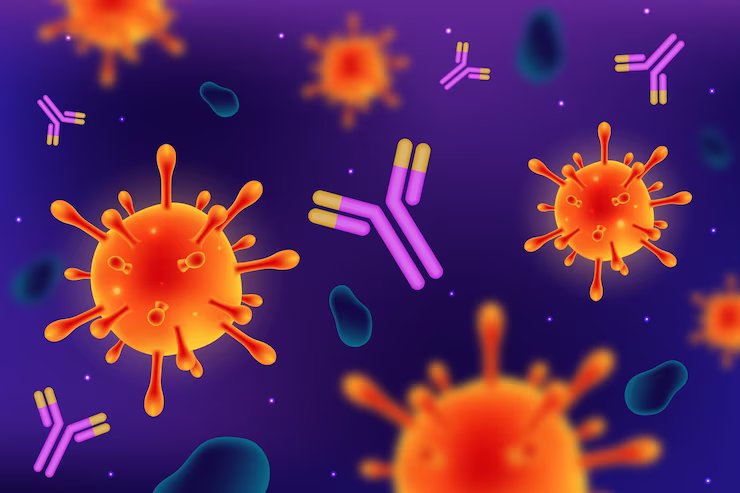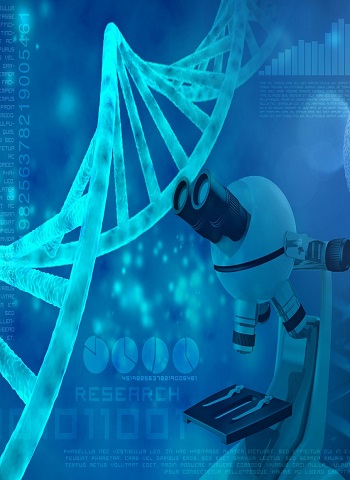In the world of modern medicine, diagnostics play a crucial role in detecting and monitoring diseases. Antibody-based diagnostics have emerged as a revolutionary technique.This technology offers significant advantages in detecting diseases in an early stage. Thus, allowing treatment plans to be customized and early intervention to be made.
This blog will discuss the realm of antibody-based diagnostics, exploring its principles, applications, and how it is transforming the healthcare landscape.
Understanding Antibody-Based Diagnostics
Antibody-based diagnostics is also known as immunoassays. These are diagnostic tests that rely on the specific binding interactions between antibodies and antigens.
Viruses, bacteria, and abnormal cells are detected by antibodies, which are proteins made by the immune system. When a pathogen enters the body, it triggers the production of antibodies. It recognize and bind to unique markers called antigens on the pathogen’s surface.
The key to the success of antibody-based diagnostics lies in the specific affinity antibodies have for their target antigens. This specificity ensures that the diagnostic tests can accurately detect and identify the presence of particular pathogens or biomarkers associated with diseases.
How Antibody-Based Diagnostics Work
Antibody-based diagnostics work by harnessing the remarkable specificity of antibody-antigen interactions. When a patient’s blood sample is collected, it is exposed to specific antibodies tailored to detect the target antigen associated with a particular disease. If the antigen is present in the sample, the antibodies will bind to it, forming an antibody-antigen complex.
Multiple methods are used to detect this complex, including enzyme-linked immunosorbent assays (ELISAs), lateral flow assays, and fluorescence-based tests. Depending on the test, the target antigen can be detected qualitatively or quantitatively.
Applications of Antibody-Based Diagnostics
Infectious Disease Detection
Antibody-based diagnostics are extensively used in detecting infectious diseases, including viral and bacterial infections. Rapid tests for illnesses like influenza, HIV, and COVID-19 are based on detecting specific antibodies the immune system produces in response to these pathogens.
These tests aid in early diagnosis and play a crucial role in monitoring the spread of infectious diseases in communities. Rapid and accurate detection of pathogens allows for timely intervention and helps contain outbreaks.
Cancer Biomarker Detection
In oncology, antibody-based diagnostics play a crucial role in identifying specific biomarkers associated with different types of cancer. These tests aid in early cancer detection, prognosis, and monitoring treatment response.
The ability to detect cancer biomarkers in blood samples or tissues allows for non-invasive screening and tracking of disease progression. This, in turn, enables oncologists to choose the most appropriate treatment options for individual patients, leading to better outcomes and improved quality of life.
Autoimmune Disorders
Antibody-based diagnostics are also used to identify autoantibodies associated with autoimmune disorders. Among these tests are those used for diagnosing rheumatoid arthritis, systemic lupus erythematosus, and celiac disease.
In addition to reducing the risk of complications and improving long-term patient outcomes, early detection of autoimmune disorders allows healthcare providers to initiate appropriate treatment plans at the earliest opportunity.

Advantages of Antibody-Based Diagnostics
Sensitivity and Specificity
One of the key advantages of antibody-based diagnostics is their high sensitivity and specificity. They can detect even trace amounts of antigens, ensuring accurate and reliable results.
The sensitivity of these tests means that they can detect diseases in their early stages, enabling prompt medical intervention and increasing the chances of successful treatment. Moreover, their high specificity reduces the risk of false-positive results, ensuring patients are not subjected to unnecessary treatments or worry.
Speed and Convenience
Rapid antibody-based tests offer quick results, allowing for timely medical decisions and immediate patient care. Additionally, they are relatively easy to administer and require minimal technical expertise.
In situations where time is of the essence, such as during disease outbreaks or emergency settings, these rapid tests prove invaluable in containing the spread of infections and facilitating targeted treatment strategies.
Personalized Medicine
Antibody-based diagnostics pave the way for personalized medicine by identifying specific biomarkers that indicate a patient’s response to particular treatments. The provider can then customize treatment plans based on the patient’s needs, optimizing the outcome of treatment.
For example, identifying certain biomarkers in cancer treatment can indicate the effectiveness of targeted therapies or immunotherapies. By selecting treatments that are more likely to be successful for a particular patient, personalized medicine improves treatment outcomes, reduces potential side effects, and improves overall patient satisfaction.
Future Perspectives of Antibody-Based Diagnostics
The field of antibody-based diagnostics is continuously evolving, driven by advancements in technology and research. As we move forward, several exciting developments are expected to shape the future of disease management:
Point-of-Care Testing
Efforts are being made to simplify and miniaturize antibody-based diagnostic tests, making them accessible at the point of care. Point-of-care testing eliminates the need for sending samples to centralized laboratories and allows for real-time diagnosis and immediate treatment decisions.
This approach has immense potential in remote or resource-limited areas where access to traditional laboratory facilities may be challenging.
Multiplex Assays
Researchers are working on developing multiplex assays that can detect multiple pathogens or biomarkers in a single test. This advancement will streamline the diagnostic process, reducing the time and resources required for testing while comprehensively analyzing a patient’s health status.
Multiplex assays will be crucial in managing diseases with overlapping symptoms or multiple pathogens causing similar clinical presentations.
Integration with Digital Health Technologies
It offers great promise to combine antibody-based diagnostics with digital health technologies like wearables and smartphone applications.Patients could monitor their health conditions in real time through wearable sensors and receive instant updates about their disease status.
This integration would facilitate early detection of disease relapses, better management, and improved patient engagement in their healthcare.
Conclusion:
Antibody-based diagnostics have revolutionized disease detection and monitoring, offering remarkable sensitivity, specificity, and convenience. These tests have become indispensable tools in modern healthcare, from infectious diseases to cancer. By harnessing the immune system’s power, antibody-based diagnostics exemplify the fusion of science and medicine in the fight against diseases.
Ongoing advancements and innovations in this field are expected to bring about transformative changes in disease management. Integrating antibody-based diagnostics with digital health technologies and the rise of personalized medicine will further enhance patient outcomes and revolutionize how we approach healthcare.
As technology continues to evolve, embracing these advancements and leveraging their potential to improve healthcare access, early detection, and personalized treatment options for patients worldwide is essential. With antibody-based diagnostics at the forefront of medical innovation, we are poised to achieve better health outcomes and a brighter future for global healthcare.


